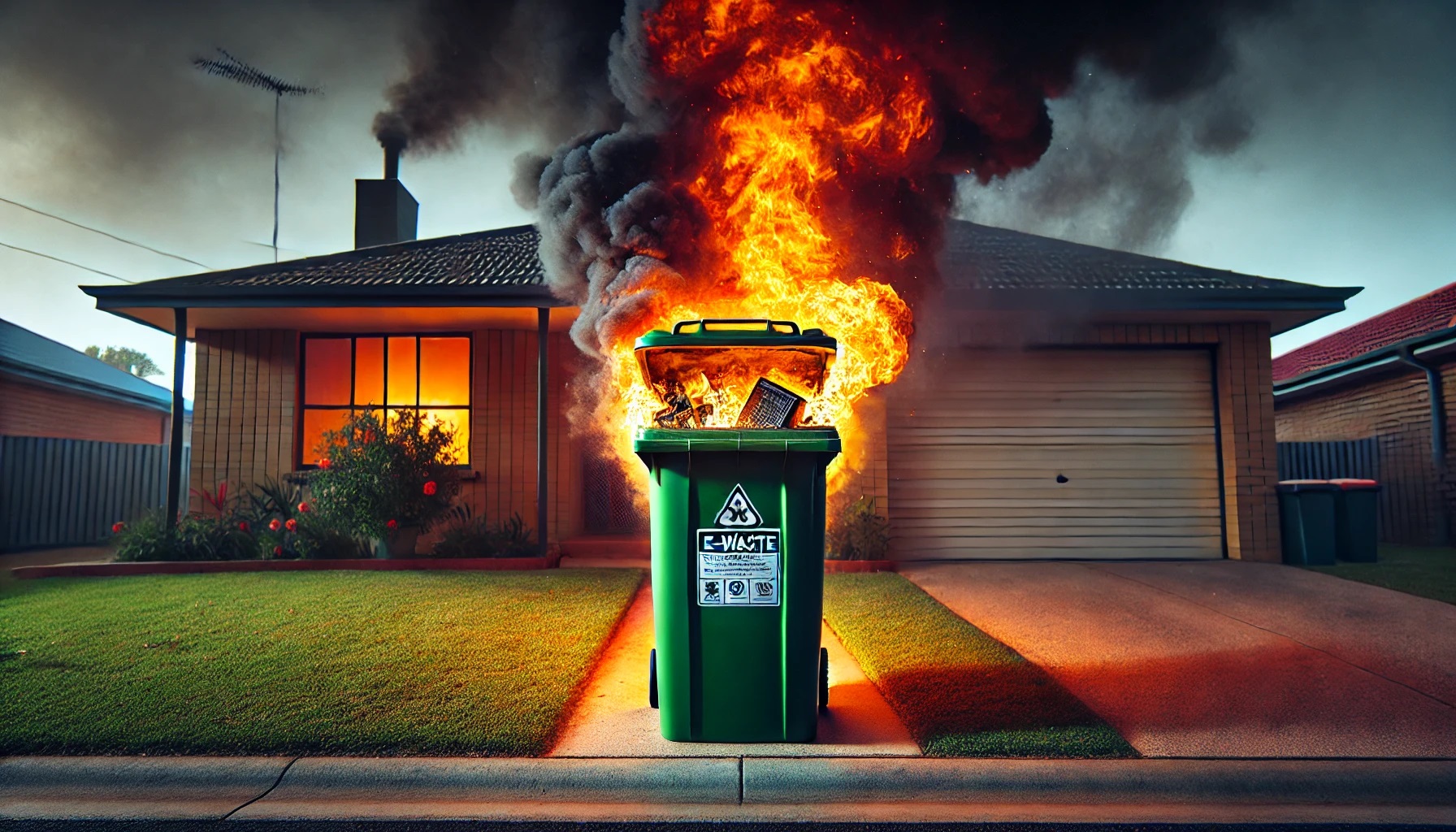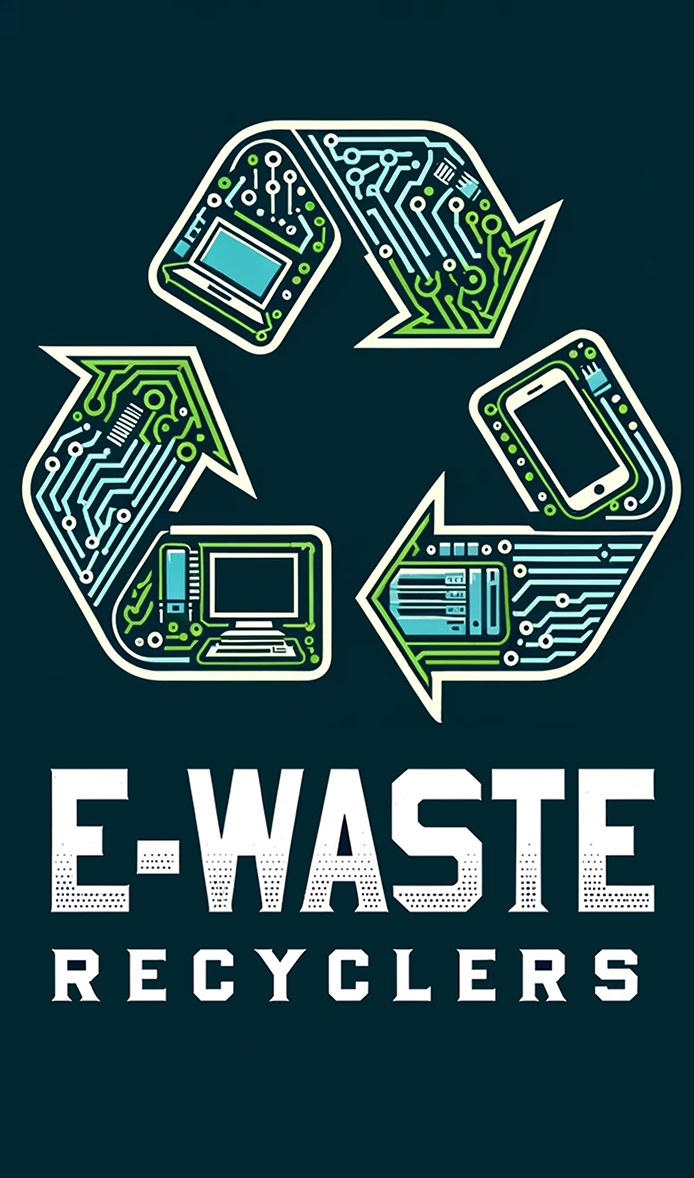Australia’s Fiery Dilemma: Tackling the Growing Threat of Lithium-Ion Batteries and E-Waste

Australia is grappling with an escalating menace: fires caused by lithium-ion batteries and electronic waste (e-waste). As the nation strives for a clean energy future, the overlooked threat of improperly disposed batteries and e-waste could undermine these ambitions.
The Rising Fire Hazard
Recycling facilities across Australia are increasingly facing fires triggered by discarded lithium-ion batteries. In Queensland alone, improperly disposed of batteries from items like disposable vapes are causing multiple fires daily. Nationally, the issue is even more severe, with facilities across the country experiencing numerous fire incidents each day due to these hazardous batteries.
Lithium-ion batteries are ubiquitous in modern electronics, powering everything from smartphones to electric scooters. When these batteries are improperly disposed of and damaged during waste processing, they can ignite, posing significant risks to workers, equipment, and the environment.
The Scale of the E-Waste Problem
Australia generates approximately 21.7 kilograms of e-waste per person annually, translating into vast quantities of discarded electronic devices. Without effective disposal and recycling methods, these devices contribute to a growing number of fires in waste management facilities.
Many of these electronic devices, particularly those with embedded lithium-ion batteries, are not designed with recycling in mind. When disposed of incorrectly, they can end up in landfills or recycling facilities where they are crushed or compacted, creating a high risk of ignition. The Australian Competition and Consumer Commission urges people to use and store lithium-ion batteries safely to prevent deadly fires.
The Human and Environmental Impact
Improper disposal of lithium-ion batteries not only threatens recycling facilities but also endangers garbage trucks and landfills. Fires in these locations can spread rapidly, causing extensive damage and posing severe risks to waste management personnel and surrounding communities.
Additionally, the environmental impact is significant. When batteries catch fire, they release toxic gases and harmful chemicals into the air, soil, and water, leading to long-term ecological damage.
Addressing the Challenge
The need for a comprehensive strategy to manage e-waste and lithium-ion batteries is urgent. Here are some key steps that can help mitigate the risk:
- Public Awareness Campaigns: Educating the public about the dangers of improper battery disposal and the importance of using designated recycling points can reduce the incidence of fires.
- Improved Recycling Infrastructure: Investing in advanced recycling facilities capable of safely handling lithium-ion batteries can help manage the growing volume of e-waste.
- Regulatory Measures: Implementing strict regulations on the disposal of electronic devices with embedded batteries can ensure that these items are handled safely and do not end up in general waste streams.
- Incentive Programs: Introducing incentive programs to encourage proper disposal of e-waste, such as refundable deposits on electronic devices, can promote responsible recycling practices.
- Design for Recycling: Encouraging manufacturers to design products with end-of-life disposal in mind, making them easier to disassemble and recycle, can significantly reduce the risk associated with e-waste.
The Path Forward
As Australia moves towards a sustainable future, addressing the hazards posed by lithium-ion batteries and e-waste is crucial. By implementing robust recycling programs, enforcing regulations, and raising public awareness, the nation can mitigate the risks associated with these materials.
For those looking to responsibly dispose of e-waste and batteries, visit https://ewasterecyclers.com.au for more information on safe disposal and recycling options.
By taking proactive steps to manage e-waste and lithium-ion batteries, Australia can protect its people, environment, and future. Ensuring the safe disposal of these materials is essential to maintaining the nation’s clean energy goals and preventing the fiery consequences of neglecting e-waste management.
Is eWaste a problem for your business? It doesn’t need to be.
Stay Informed with the Latest in E-Waste Recycling!
Join our mailing list to receive:
Breaking News: Stay updated on the latest developments in e-waste recycling across Australia.
Legislation Updates: Be the first to know about new laws and regulations affecting e-waste management in Australia.
Business Practices: Gain insights into best practices for sustainable e-waste disposal tailored for Australian businesses.
Expert Tips: Get expert advice on how to manage and reduce your electronic waste effectively.
Sign up today and never miss an update! Simply enter your email address below to join our community of environmentally conscious individuals and businesses in Australia.
